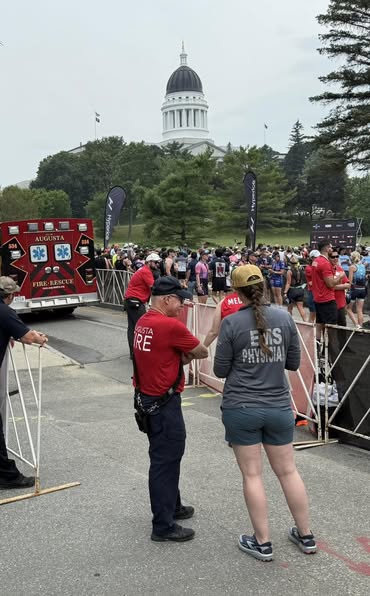EMS Physician Scene Response Program
When every second counts in the Kennebec Valley, our EMS physicians are there, working side-by-side with EMS professionals. Your support puts their life-saving expertise on the front line.
Rapid Sequence Intubation (RSI): An advanced procedure to quickly and safely place a breathing tube. It involves using a rapid-acting sedative followed by a paralytic medication to protect the patient’s airway.
- Ultrasound: Using a portable ultrasound machine to diagnose conditions like internal bleeding or to guide procedures.
Wound Repair: Cleaning and closing cuts or injuries using stitches, staples, or medical adhesives to stop bleeding and prevent infection.
Urinary Catheter Placement: Inserting a tube to drain the bladder, which helps monitor kidney function and fluid status in critical patients.
Complex Interfacility Transports: Moving critically ill patients between hospitals while providing continuous, critical care life support.
Treat and Release: Providing medical care on-site for patients who don’t require an emergency department visit.
Pericardiocentesis: A procedure to drain fluid from the sac around the heart to relieve life-threatening pressure.
Blood Transfusion: Giving patients blood when they have experienced severe bleeding.
Field Amputation: A life-saving surgical procedure performed outside of a hospital to free a trapped patient.
Ventilator Management: Using a breathing machine (ventilator) to help a patient breathe during transport.
Emergency Thoracotomy: An open-chest procedure to directly address life-threatening injuries to the heart or major blood vessels.
Chest Tube Placement: Inserting a tube into the chest to reinflate a collapsed lung by draining trapped air or fluid.
- Resuscitative hysterotomy: An emergency abdominal surgery to deliver a a baby
Our No-Cost Commitment
No-Cost Care & Education
No-Cost Physician-Level Field Response: Agencies who request our EMS physicians to respond to a scene will never receive a bill from MD3. Likewise, patients who receive assessment or care from our physicians will never be charged
No-Cost Professional Development: We offer educational opportunities for our EMS partners at no cost to help enhance skills and improve patient outcomes across the region.
All of our operations are made possible through grants and public donations.
MEET OUR DOCTORS
MD3 physicians deliver expert, on-scene emergency care for high-acuity and complex medical cases. We partner with EMS professionals and receiving hospital teams to ensure seamless patient care. Our commitment to excellence is upheld through rigorous quality improvement, peer review, and continuous education.
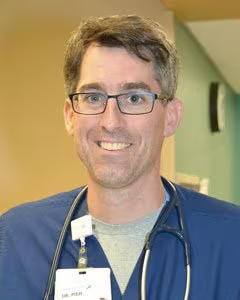
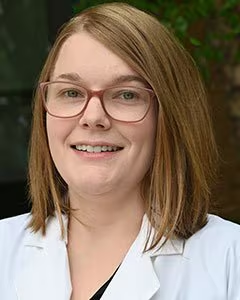
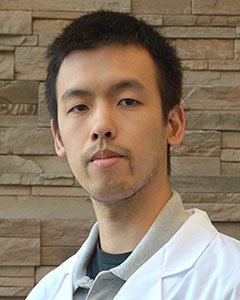
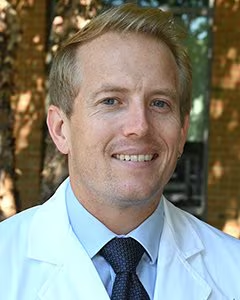
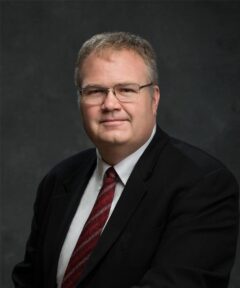
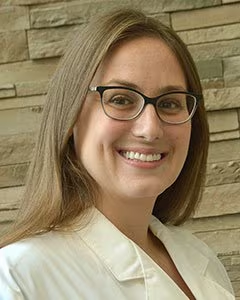
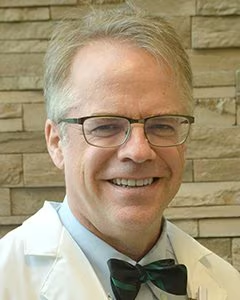
Physician EMS Field Response Goals
MD3 enhances the education of EMS professionals and the quality of patient care through a multi-faceted approach. We offer formal continuing education courses, as well as real-time feedback on scene and after calls. This collaborative approach also allows our physicians to learn from the expertise and real-world experience of our partners in Fire and EMS agencies, fostering mutual respect and system-wide improvement.
MD3 physicians bring experience, special tools, skills, and medications to complicated situations, such as:
- High-risk patient refusals
- Combative patients, with additional sedation options
- Assistance with releasing patients with minor conditions at the scene, both for everyday incidents and during mass casualty events
- Firefighter rehabilitation and Hazardous Materials (HazMat) situations
- Response to occupational exposures and injured providers
- Assistance with critical care inter-facility transports
- Clinical backup to Intermediate Life Support (ILS) and Basic Life Support (BLS) units
MD3 is committed to enhancing regional emergency system design and function by providing direct feedback to our partner agencies, EMS leadership, and receiving hospitals.
All MD3 physicians work in emergency departments in a variety of Maine hospitals. Each has received specialty training to function as an EMS Physician in the field. Many are also board-certified in EMS and/or have extensive prior experience as prehospital care providers, from EMT to Paramedic.
In addition to being credentialed to practice emergency medicine, our responding physicians possess the following training or an equivalent:
- Certified Emergency Vehicle Operator (CEVO)
- Traffic Incident Management and Responder Safety Course (TIM Certificate)
- Vehicle Extrication Awareness
- Incident Command System (ICS)
- Tactical Medicine Fundamentals
- Emergency Radio Operations
- Fireground Awareness
- ACLS
- ATLS
- PALS
- NRP
Response requests can be made by any area EMS agency through their dispatch center or by phone at 207-861-4244.
Frequently Asked Questions
.
MD3’s operational goal is to provide coverage Monday through Friday, from 9:00 AM to 5:00 PM. Our actual availability during these hours can vary based on staffing.
Our team continuously analyzes community needs to align our services with peak demand hours. It is our long-term goal to expand our hours of operation into evenings and weekends as our organization grows.
This expansion is only possible through the generosity of our community. Your tax-deductible contribution directly helps us acquire the resources needed to extend our services. If you would like to help us achieve this goal, please consider making a donation today.
We never send a bill to patients or to the first responder agencies that request our assistance on a scene.
MD3 operates as a 501(c)(3) non-profit organization. Our ability to provide this critical service for free is powered entirely by the generosity of our community through tax-deductible contributions. This funding equips our physicians and maintains our readiness to respond to any emergency.
No, MD3 cannot be requested directly by patients or the general public. We function as a specialized medical resource that integrates with the existing 9-1-1 system to support on-scene public safety personnel.
If you are experiencing a medical emergency, you should always call 9-1-1 immediately.
The 9-1-1 dispatcher will send the appropriate help, such as an ambulance or fire department. If the first responders on the scene determine that our specialized physician-level support is needed, they are the ones who will request MD3 to respond.
We are thrilled that you are considering supporting our mission! We want to be fully transparent about the current tax status of your contribution.
We have successfully submitted Form 1023, Application for Recognition of Exemption Under Section 501(c)(3), to the Internal Revenue Service (IRS). Our application is currently pending review.
What this means for your donation:
Status is Pending: At this time, we do not have official IRS recognition as a 501(c)(3) public charity, and therefore, contributions do not yet have advance assurance of tax deductibility.
Retroactive Approval: If the IRS approves our application (Form 1023) as filed, our 501(c)(3) tax-exempt status will be retroactive to the date of our founding. This means that your donation, made while we were pending, will become tax-deductible at that time.
Documentation: Upon receipt of our official determination letter from the IRS, we will immediately notify all donors and provide the necessary documentation for your tax records. We advise all donors to retain their contribution receipts and consult with a tax professional regarding their specific tax situation.
We are confident in our application and appreciate your belief in our mission during this critical waiting period!
